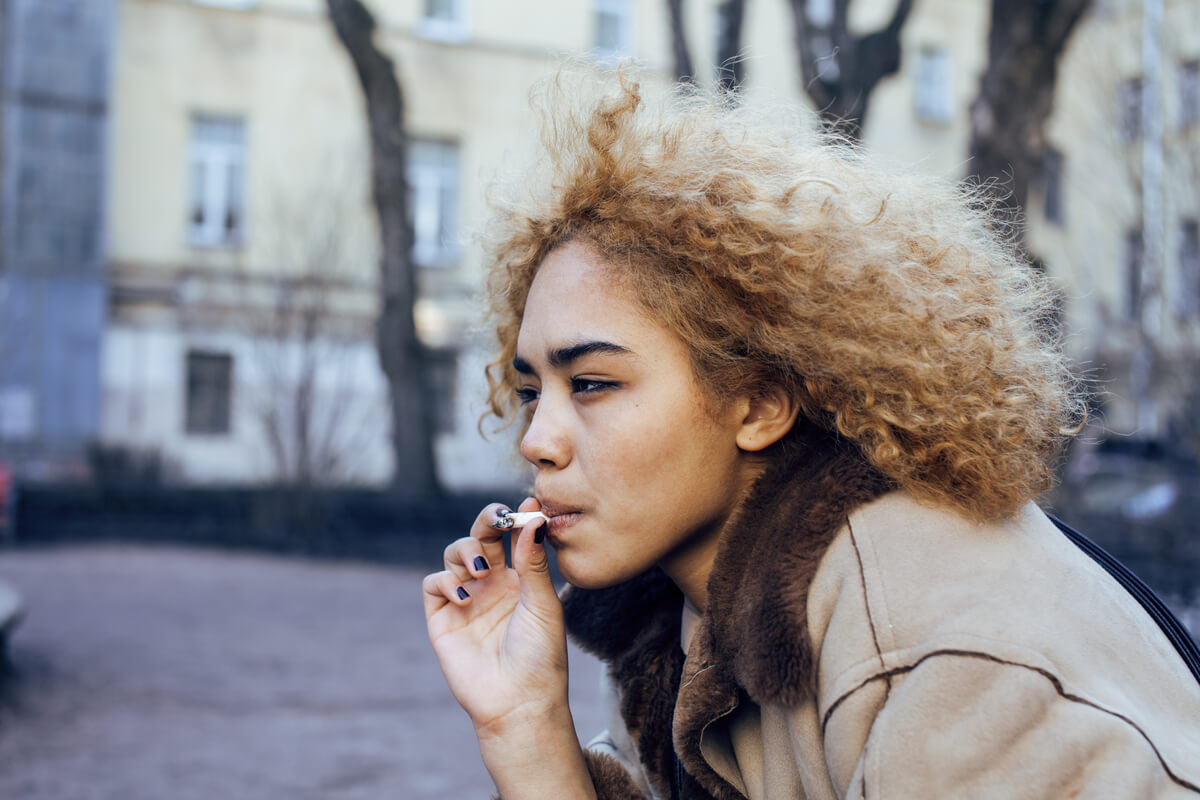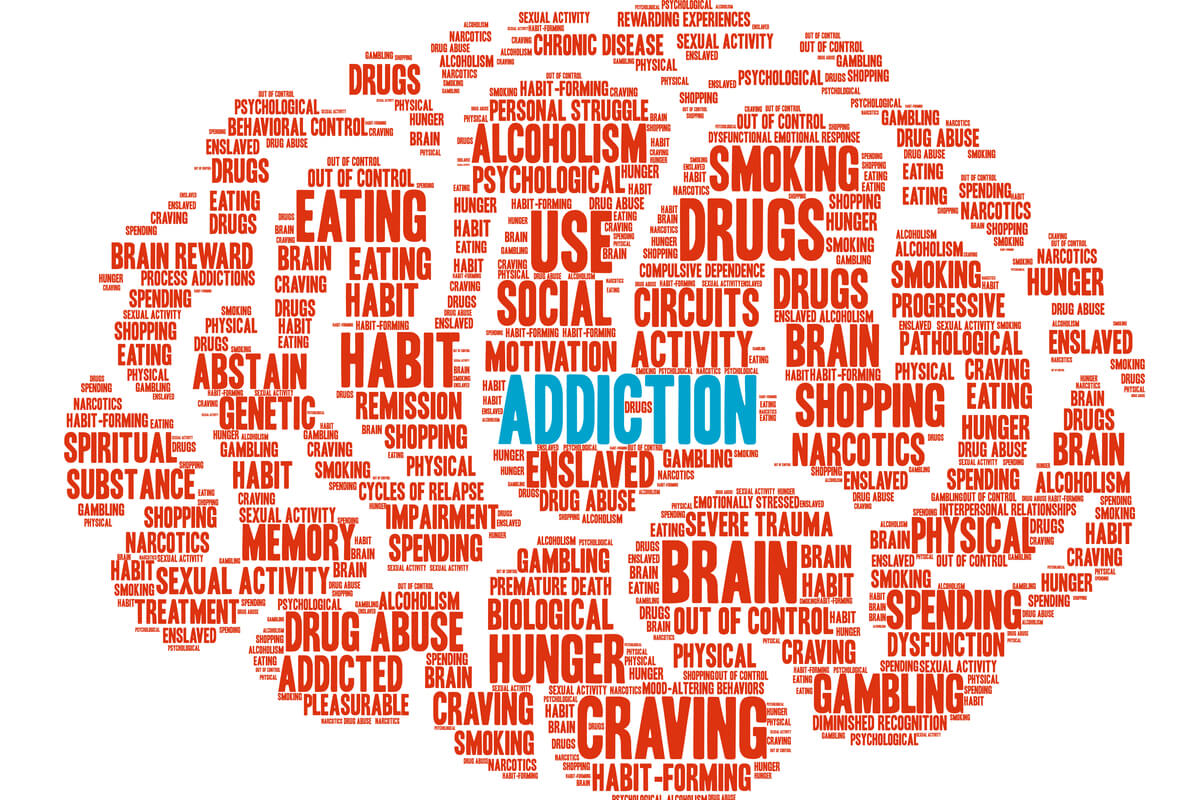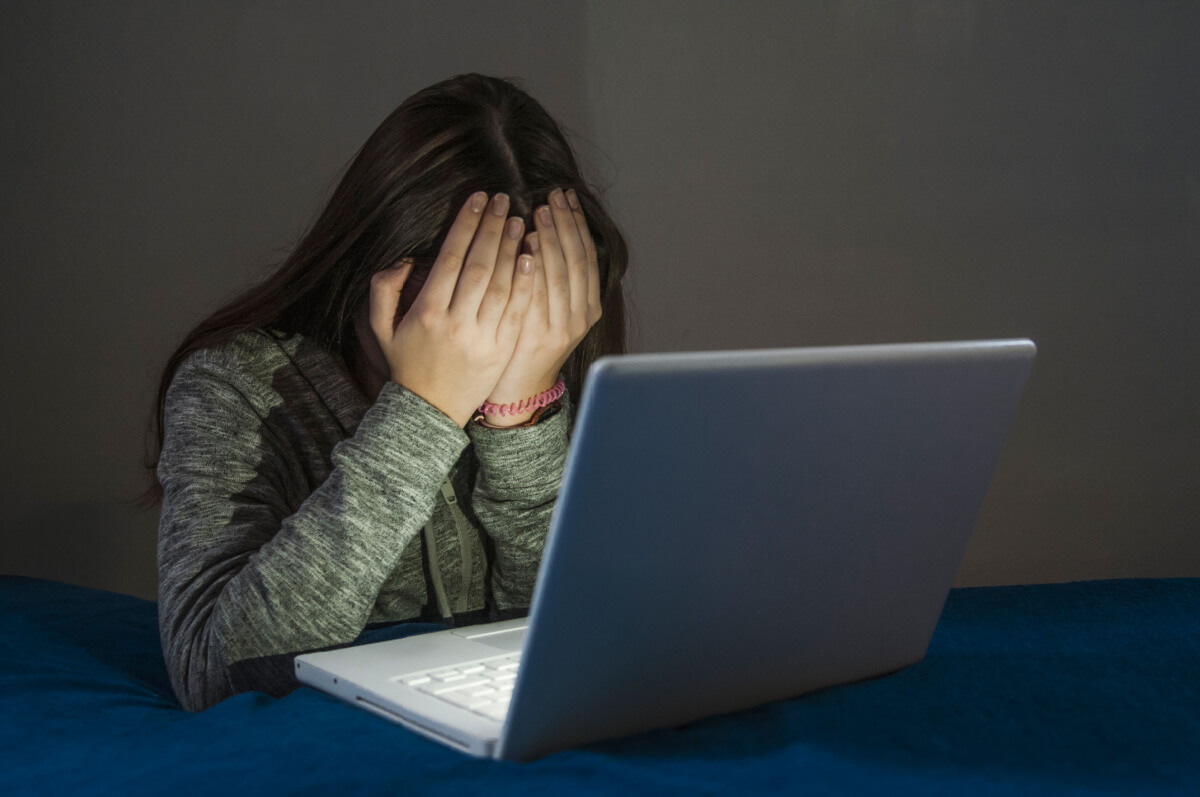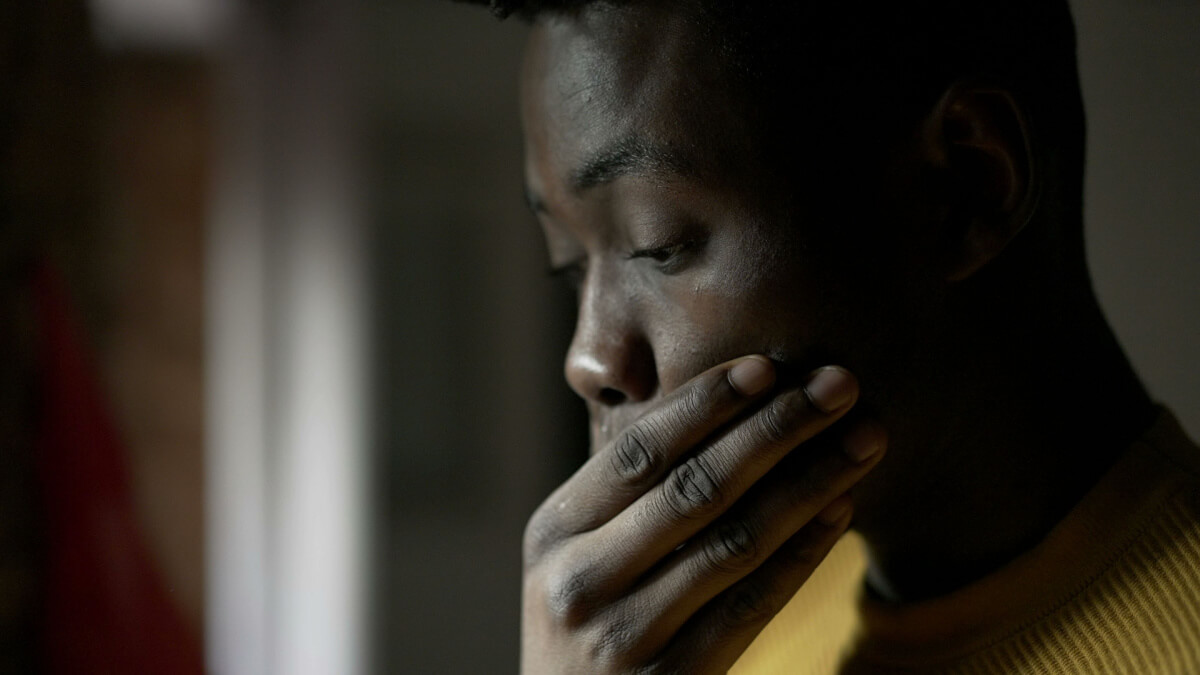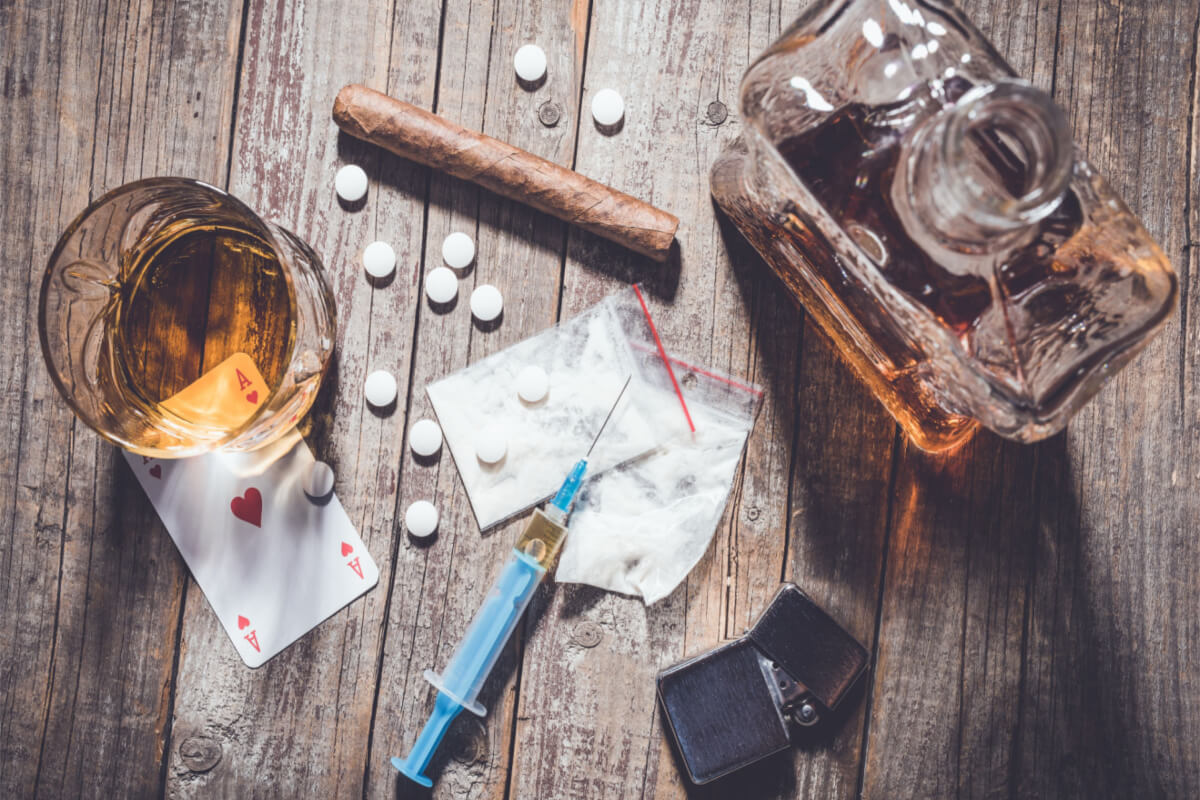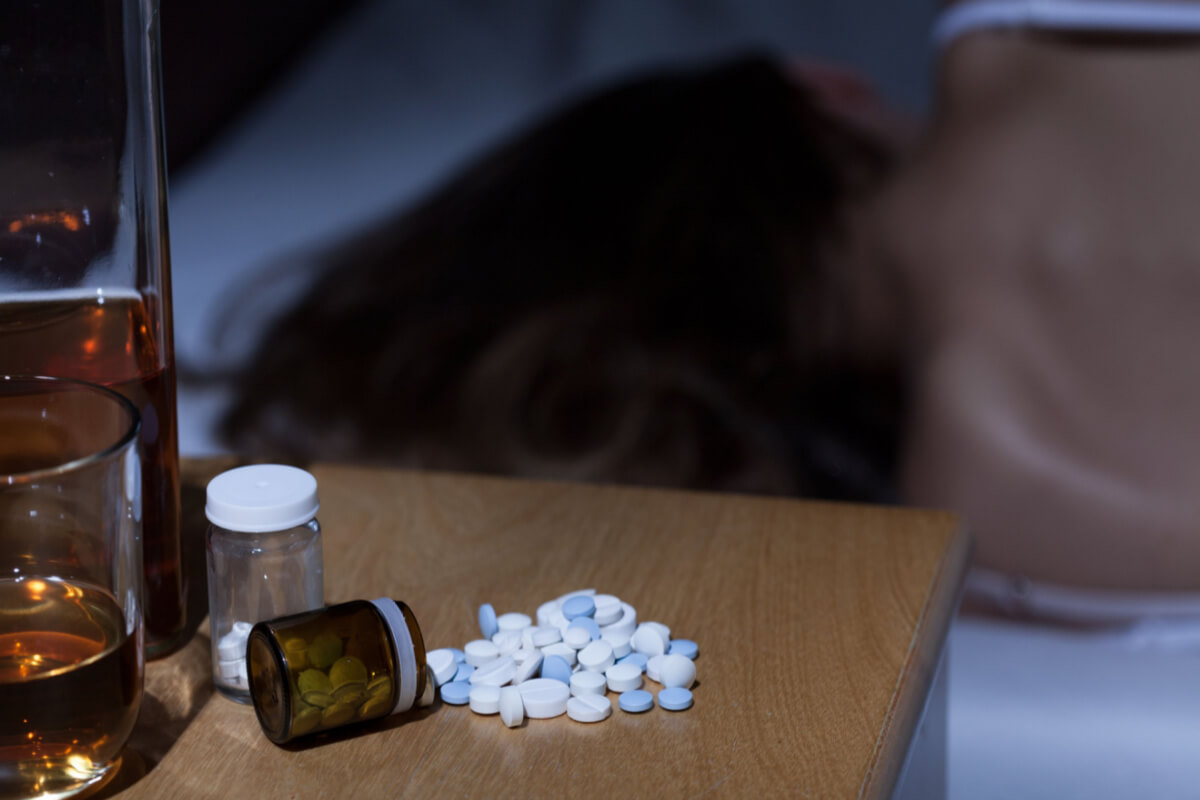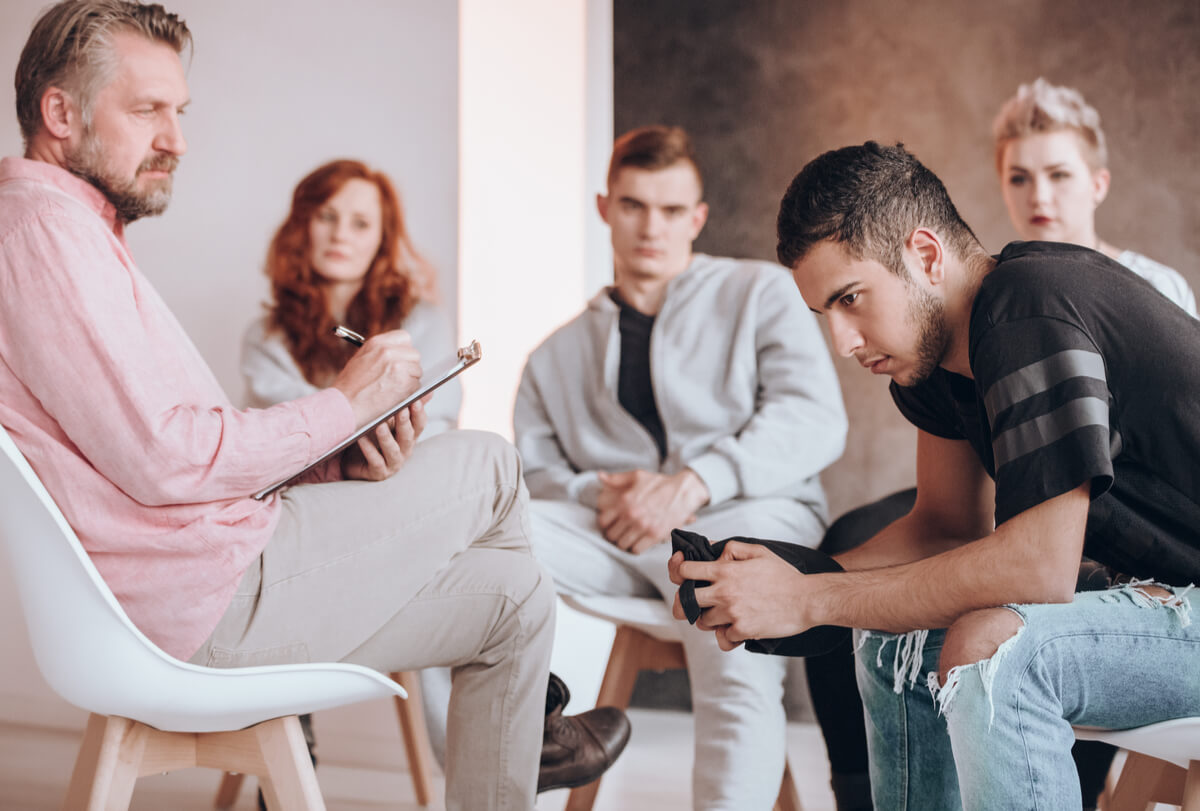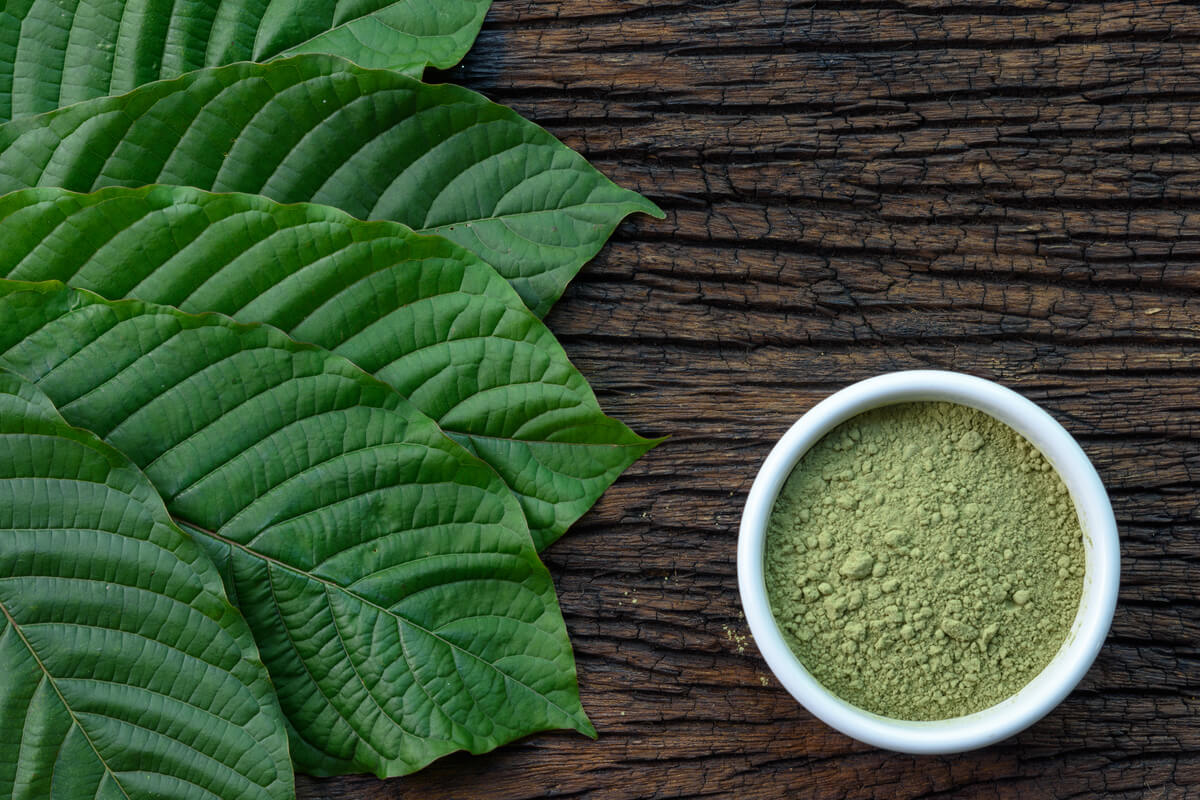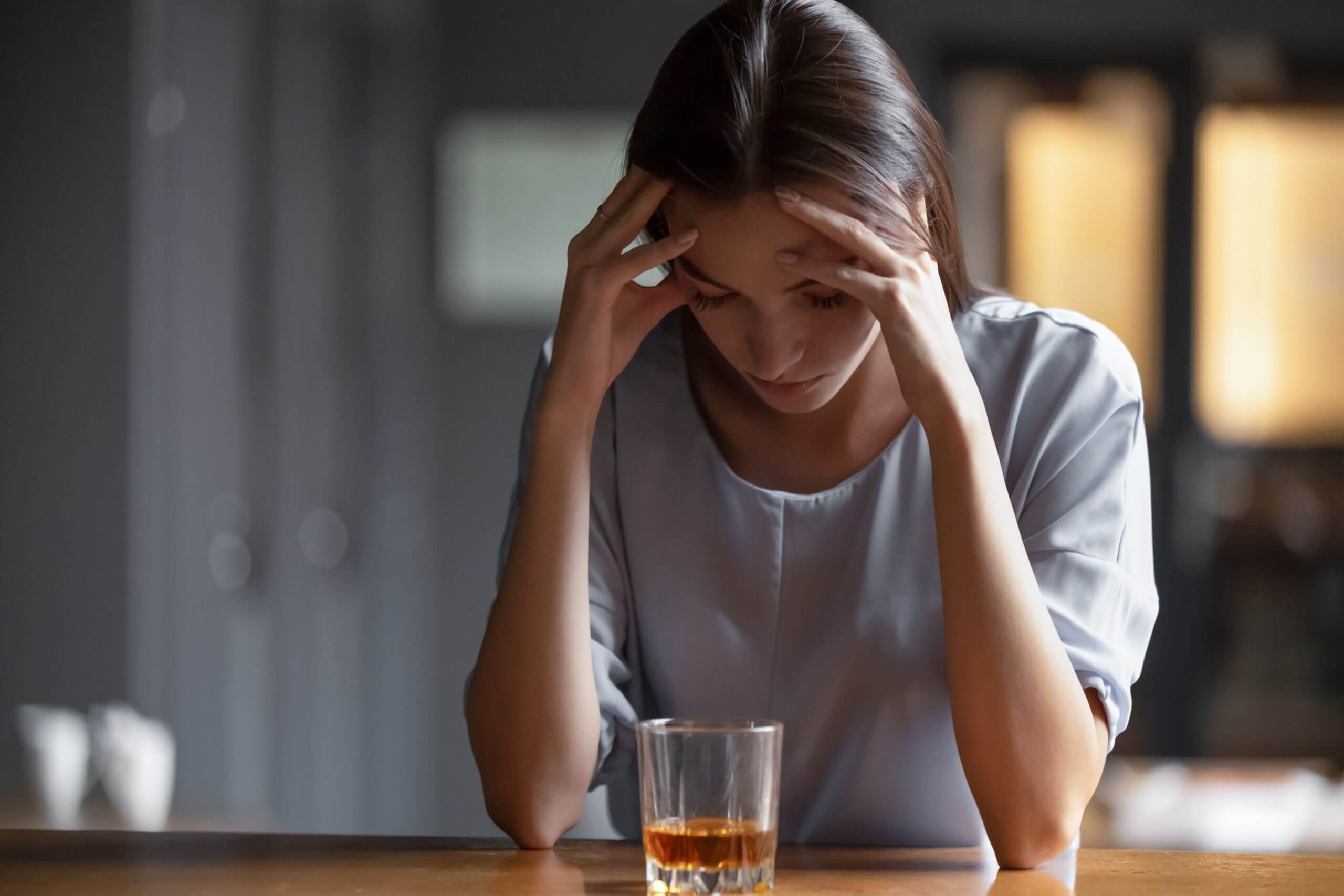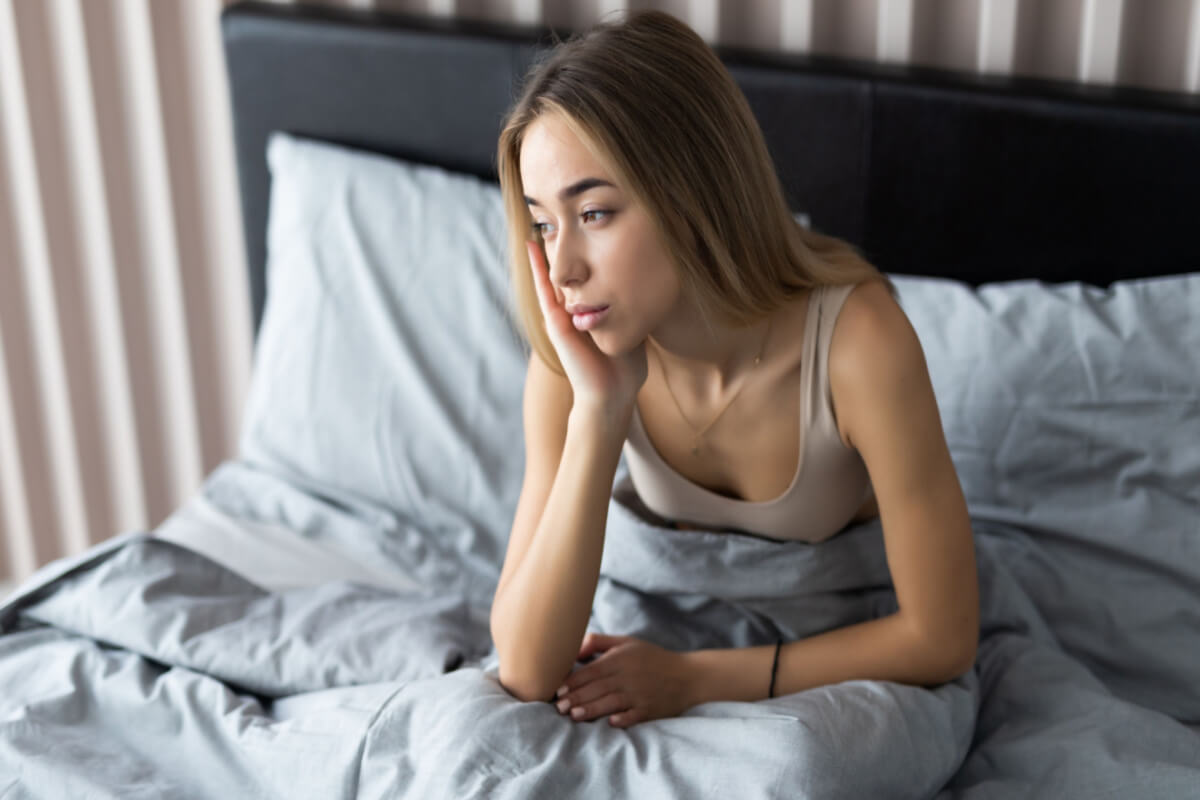
Up to 70% of heavy alcohol users have symptoms consistent with clinical insomnia.[1] For men, heavy drinking is associated with waking multiple times at night, further impeding sleep.[2] Ironically, people with a drinking habit may reach for alcohol when they can’t sleep, perpetuating a vicious cycle. While alcohol does decrease sleep latency (shortens the time to fall asleep), it actually negatively impacts sleep quality. Overall, alcohol is actually thought to decrease sleep quality.
The Biology Behind Alcohol & Sleep
Your brain cells use gamma-aminobutyric acid (GABA) to slow activity and help you feel relaxed. Alcohol mimics GABA, which can make people fall asleep more easily. [3] This is called decreased sleep latency.
But within a few hours of sleep, your body has metabolized alcohol’s GABA-like molecules. The byproduct is glutamate, which is an excitatory element. Your brain cells wake up, and the part of your brain most responsive to glutamate also controls your sleep/wake functions. This is potentially the explanation for why alcohol actually decreases the quality of sleep overall.
How Does Alcohol Affect Sleep?
Alcohol-induced sleep isn’t truly “restful” for the reasons described above. Alcohol can exacerbate these other sleep-related conditions:
Insomnia
People with alcohol use disorders often drink to improve their sleep.[4] They may fall asleep faster after a few drinks, but they may not stay asleep or experience restful sleep. In other words, even if they have better sleep latency, they still have impaired sleep quality.
Sleep Apnea
People with sleep apnea experience repeated airway blockages as their larynx spontaneously closes during the night. Alcohol reduces the tone of the larynx and throat, increasing the number of apnic events each night, which can greatly worsen sleep quality. Sleep apnea, which is worsened by alcohol, can lead to chronic fatigue, chronic headaches, and elevated blood pressure. Studies show that alcohol raises the risk of sleep apnea by 25%.[5] If you already have apnea, alcohol will make this condition worse.
Increased Wakefulness
Even though some people report that alcohol helps them fall asleep faster, there is some evidence to the contrary: Researchers say alcohol reduces melatonin production by up to 19%.[6] Melatonin helps us to fall asleep naturally. Thus, in some individuals, alcohol may make it harder to fall asleep.
Stages of Sleep: Alcohol’s Impact
Adults ideally need between seven and nine hours of sleep every night.[7] While resting in bed, your brain and body move through several stages. Alcohol impacts all of them.
Stage 1: Falling Asleep (Sleep Latency)
Alcohol is a sedative drug. It slows down your breathing rate, heartbeat, and brain waves. People who drink report that they can fall asleep faster with alcohol in their bodies.[8] This is called sleep latency.
Overall, alcohol shortens sleep latency, meaning people tend to fall asleep faster. But does this mean they get more sleep or feel more rested the next day? Not necessarily.
Stage 2: Non-REM Sleep
As you drop deeper into slumber, your heartbeat and muscle activity slow. Your body temperature drops, and your movement stills. While in these sleep stages, your tissues come together, your immune system recharges, and your memories solidify.
Non-REM sleep is often called deep sleep. Researchers say alcohol alters the quality of non-REM sleep. Parts of your brain are aroused, which means you’re easier to wake up.[9]
Stage 3: REM Sleep
During REM (rapid eye movement) sleep, the body consolidates memory through the process of dreaming.
Alcohol reduces your time in REM sleep, especially in the first part of the night.[10] This means you are overall getting less time to process emotions and memories while sleeping.
What Should You Do Next?
If you often need to drink to help you sleep, you may have a sleep disorder and/or an alcohol use disorder. It might be a sign that you could benefit from some professional help. Talk to your doctor about other ways of obtaining healthy, natural sleep.
Alcohol & Sleep FAQs
How does alcohol affect your sleep?
Alcohol tends to decrease sleep latency (the time it takes to fall asleep) and may help you fall asleep faster, but your overall sleep quality is usually worse. You may spend less time in both deep sleep and less time in REM sleep, both of which are thought to be important for brain function and memory consolidation.
How much alcohol can ruin your sleep?
Depending on your tolerance, even one drink can negatively impact your sleep quality. Unfortunately, there is no guaranteed safe amount of alcohol to drink to preserve a good night’s sleep.
Is it dangerous to sleep while drunk?
Falling asleep while severely intoxicated increases the risk of choking, aspiration, and respiratory suppression, leading to overdose and even death. If you are drinking to the point of “passing out,” it could be a sign of an alcohol use disorder, and you should seek help from a doctor or other mental health professional.

By Elena Hill, MD, MPH
Elena Hill, MD; MPH received her MD and Masters of Public Health degrees at Tufts Medical School and completed her family medicine residency at Boston Medical Center. She is currently an attending physician at Bronxcare Health Systems in the Bronx, NY where ... Read More
- Sleep Abnormalities Associated with Alcohol, Cannabis, Cocaine, and Opiate Use: A Comprehensive Review. Addiction Science and Clinical Practice. https://ascpjournal.biomedcentral.com/articles/10.1186/s13722-016-0056-7. April 2016. Accessed March 2023.
- The Association Between Alcohol Consumption and Sleep Disorders Among Older People in the General Population. Nature. https://www.nature.com/articles/s41598-020-62227-0. March 2020. Accessed March 2023.
- Alcohol, Sleep, and Why You Might Rethink That Nightcap. Scitable. https://www.nature.com/scitable/blog/mind-read/alcohol_sleep_and_why_you/. October 2013. Accessed March 2023.
- The Effects of Alcohol on Quality of Sleep. Korean Journal of Family Medicine. https://www.ncbi.nlm.nih.gov/pmc/articles/PMC4666864/. November 2015. Accessed March 2023.
- Alcohol and the Risk of Sleep Apnoea: A Systematic Review and Meta-Analysis. Sleep Medicine. https://www.ncbi.nlm.nih.gov/pmc/articles/PMC5840512/. February 2018. Accessed March 2023.
- Evening Alcohol Suppresses Salivary Melatonin in Young Adults. Chronobiology International. https://pubmed.ncbi.nlm.nih.gov/17612945/. 2007. Accessed March 2023.
- How Much Sleep Do I Need? Centers for Disease Control and Prevention. https://www.cdc.gov/sleep/about_sleep/how_much_sleep.html. March 2017. Accessed March 2023.
- Alcohol and the Sleeping Brain. Handbook of Clinical Neurology. https://www.ncbi.nlm.nih.gov/pmc/articles/PMC5821259/. February 2018. Accessed March 2023.
- The Acute Effects of Alcohol on Sleep Electroencephalogram Power Spectra in Late Adolescence. Alcoholism: Clinical and Experimental Research. https://www.dependencias.pt/ficheiros/conteudos/files/os%20efeitos%20agudos%20do%20alcool%20sobre%20o%20sono.pdf. 2015. Accessed March 2023.
- Sleep, Sleepiness, and Alcohol Use. National Institute on Alcohol Abuse and Alcoholism. https://pubs.niaaa.nih.gov/publications/arh25-2/101-109.htm. Accessed January 2023.
- Understanding the Dangers of Alcohol Overdose or Alcohol Poisoning. College Drinking. https://www.collegedrinkingprevention.gov/parentsandstudents/students/factsheets/factsaboutalcoholpoisoning.aspx. Accessed March 2023.
Download Our Free Program Guide
Learn about our program, its effectiveness and what to expect
Related articles
Imagine what’s possible on the other side of opioid use disorder.
Our science-backed approach boasts 95% of patients reporting no withdrawal symptoms at 7 days. We can help you achieve easier days and a happier future.
